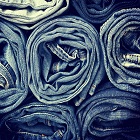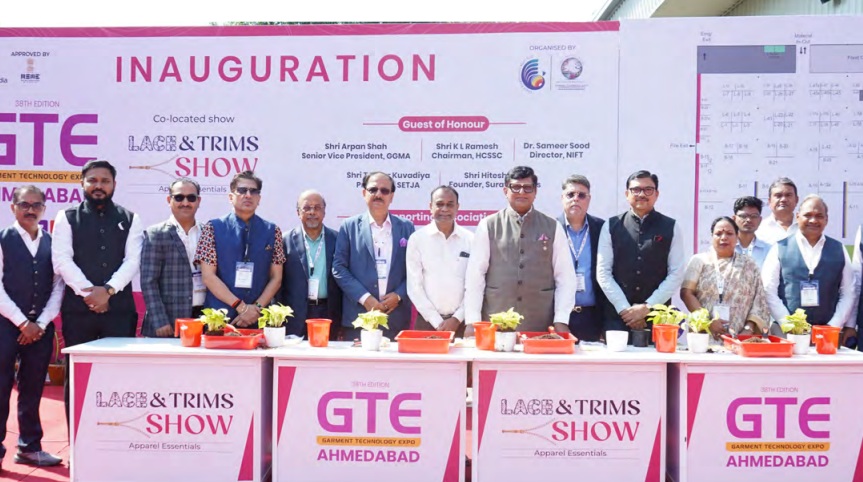FW
International Finance Corporation and VF Corp are working together to enhance the long-term competitiveness and sustainability of the textile wet processing sector in Bangladesh. This is being done by reducing excessive groundwater extraction and surface water pollution, energy and chemical use. The project will be carried out by IFC’s Bangladesh Partnership for Cleaner Textile (PACT) program. VF Corp joins 12 other brands in the PACT family, bringing the total partner brands to 13. The program has contributed to water and energy savings of 14.4 billion liters and 1.23 million megawatt hours per year.
IFC is a member of the World Bank Group. In Bangladesh, IFC provides both investment and advisory support and works along with other stakeholders to help the garment sector become globally competitive and safe for its employees. VF Corp is a branded lifestyle apparel, footwear and accessories company. VF aims at assisting its strategic suppliers in reducing their water, energy, waste, and chemical use, while simultaneously reducing the cost of production.
PACT will engage with VF’s supplier factories in awareness building, basic and in-depth cleaner production assessment. Major activities will include factory-level advice on technical assessment of resource efficient textile processing, facilitating implementation through user groups, strengthening corporate water and energy management systems, and investment facilitation in technologies with significant water sustainability benefits.
The United States Department of Labour (US DOL) has removed garments made in Jordan from its 2016 Trafficking Victims Protection Reauthorization Act (TVPRA) list. This was done as incidence of forced labour in the production of garments in Jordan has been significantly reduced, a US DOL report read.
'While there are still some indicators of forced labour present in the sector, their incidence is isolated and consistent with the standard articulated in the Procedural Guidelines, the evidence no longer supports inclusion of garments from Jordan in the TVPRA List,' reads the seventh edition of the List of Goods Produced by Child Labor or Forced Labour issued on September 30.
'The removal of these goods from the list is a result of targeted action,' says the report which includes the collection and reporting of credible information, the investment of significant resources by the government of Jordan, the USG, and the International Labour Organization (ILO). The US DOL also reports that 'one of Jordanian government's most significant steps to combat forced labour in the garment industry has been to collaborate with the ILO on the BWJ program which was launched in 2008 with funding from the USG and from participating garment buyers.'
Invista’s brand Cordura has been making fabrics for the armed forces for nearly 50 years. Cordura has been driving military textile innovation with performance solutions featured in both fabrics and webbings used extensively in combat gear, such as the SDN yarn technology. These solutions are suitable for use in load carriage equipment, boots, body armor covers, knee/elbow pads and other similar tactical gear.
Available in a palette of six military colors that meet both lot-to-lot shade and infrared requirements, the fabrics have built-in reflectance capability as well as resistance to sunlight UV fade and strength degradation. Cordura has made fabric innovations for military gear and apparel. The goal is to develop reliable, innovative fabric solutions that help equip soldiers to meet the battlefield challenges of today and tomorrow.
Cordura nylon 6, 6 fabrics are designed to be the soldier’s first line of defense in protective/ballistic vests. These fabrics are meant for protection against heat, flame and thermal propagation in protective apparel and footwear. Cordura Nyco tactical fabric focuses on lightweight comfort. This optimized fabric is a comfort blend of Invista T420 fiber and cotton. It’s engineered to help provide security and protection for war fighters and their vital equipment through lighter weight and exceptional durability.
The limited edition collection, that won Teatum Jones the 2015/16 International Woolmark Prize for womens wear, is now available at select David Jones stores and its website until stocks last. The launch of the collection at David Jones comes after the winning design duo of Catherine Teatum and Rob Jones visited the source of the fibre they work with.
As one of the original retail partners for the International Woolmark Prize, David Jones is the exclusive stockist of Teatum Jones collection in Australia. The collection will be available globally through International Woolmark Prize retail partners including Boutique 1 (Dubai), Boon the Shop (Seoul) Harvey Nichols (London), Isetan Mitsukoshi (Tokyo), Leclaireur (Paris), mytheresa.com (online), Saks Fifth Avenue (New York) and Verso (Antwerp).
David Jones is Australia’s leading retailer known to showcase several luxury brands and offer customers the finest options across fashion, beauty and home. Its philosophy perfectly aligns to that of the International Woolmark Prize: fostering the development of emerging international designers and being constantly on the lookout for the next big name in fashion.
Following a global search that nominated 41 emerging womens wear designers from across the world British labels, Teatum Jones was chosen as the winner at a final event staged during New York Fashion Week in February. Using fine Australian Merino wool for their winning collection, the designer duo partnered with a specialist guipure lace mill in France and convinced them to use wool for the first time in a particular way to create innovative and vibrant geometric Merino laces.
The International Woolmark Prize celebrates outstanding fashion talents from across the globe that showcase the beauty and versatility of Merino wool. First held in 1953 as an initiative of the International Wool Secretariat, the award was won by the then relatively unknown and now iconic fashion designers Karl Lagerfeld and Yves Saint Laurent the following year.
A free trade agreement with the European Union would boost exports of garments and fabrics from India and help tackle competition from Bangladesh. While Bangladesh enjoys preferential treatment and tax benefits for textile exports in the EU, India has a greater competitive advantage in terms of environmental compliances. Countries of the EU lay huge importance to environmental compliances.
Once an agreement between India and the EU is in place, and exporters from India also get tax preferences, it would be easier to face competition from Bangladesh. The Indian textile industry is at a turning point. China’s export growth in textiles is decreasing and India is enjoying cost advantages, while it is also among the very few countries which have the entire value chain existing within the country. Several states are coming out with their own policy and incentive schemes for the textile sector.
FTA proposals have hit a roadblock. The negotiations were launched in 2007. There are some disagreements in areas such as duty cuts on automobiles, wines and spirits, data security status and easier temporary movement of services professionals.
The EU is India’s number one trading partner. India is the EU’s ninth trading partner. Among EU exports to India are engineering goods, gems and jewelry, other manufactured goods and chemicals. Among EU imports from India are textiles and clothing, chemicals and engineering goods.
Fashion Hong Kong will return to Amazon Fashion Week Tokyo on October 17. Supported by the Hong Kong Trade Development Council (HKTDC), it will feature three innovative Hong Kong fashion designers viz Chailie Ho and Polly Ho and first-time participant Vickie Au. It would end on October 20. It will showcase the designers’ collections and feature 24 fashion and accessories brands.
Tokyo is known for its fashion-forward culture while Amazon Fashion Week Tokyo is one of the top-tier international fashion weeks. Designer Chailie Ho will present her collection ‘Dream, or Jail’ which searches for an innovative breakthrough by building around special silhouettes and presenting the tension of fabrics. Following her success last year, Polly Ho’s latest collection ‘The Double Life of Madam White Snake has been inspired by the Chinese legend ‘Madam White Snake’ and created with delicate Canton silk and traditional Chinese knot structures, which reflect her ‘East meets West’ design philosophy. Debutant Vickie Au will introduce her Urban Chill collection. Applying de-constructivist architectural styles and modern swimming pool features, the collection embodies a refreshing summery feeling.
At the Fashion Gallery, visitors will be able to see and handle designers’ runway pieces as well as a wide range of fashion accessories such as eyewear, handbags and shoes from 23 Hong Kong brands. Thirteen of the designers’ brands will be unveiled at K11, a revolutionary museum retail concept that fuses art and shopping, featuring top global and local brands in a complex adorned with sculptures and interactive art.
Clothing exports from Mediterranean countries to Europe have dropped from 25 per cent in 2007 to 17.6 per cent in 2015. Morocco was the eighth largest supplier of clothing and textiles to the European Union in 2015. In the first half of 2016, exports to Europe boomed by 8 per cent. One reason for the dip in Mediterranean exports is competition from Asia. With 1.3 million employees, 3,800 businesses and exports worth $27.2 thousand million in 2015, Vietnam’s clothing and textile sector represents one of the largest exporters in the world. The Chinese textile industry is the world’s leading producer and exporter with 28 million employees. In 2015, its exports topped $284 thousand million, $44 thousand million of which went to the European Union.
There are plans for a joint European and North African sectoral program that needs to be developed and implemented to develop a growth strategy that offers perspectives for the future. Textiles are the largest exports from Tunisia, Morocco and Jordan while for Egypt and Syria it is the second largest after oil. In Turkey, Tunisia, Morocco, Egypt, Syria and Jordan the textiles and clothing industry accounts for between 30 and 50 per cent of all industrial jobs.
With an eye on job creation, the government is doing its best to make the textile sector more competitive by pursuing a lower GST rate. It is willing to allow automobile and wine imports from the European Union in return for market access for Indian apparel. According to Textiles Secretary Rashmi Verma, India is at a critical juncture for like China, Indian textiles is moving out of global markets due to increase in labour costs and higher domestic demand. Therefore, this is the right time for the country to occupy the space left by China.
Conceding that Bangladesh is poised to overtake Indian garments and others like Vietnam, Kenya and Ethiopia are catching up, Verma said the government was seeking to nullify the competitive disadvantage that arises due to these countries getting duty-free access to the EU and US Indian products attract a 9.5 per cent duty in the EU.
Asking the industry to take advantage of the recently announced 3-year package for the sector, the Textile Secretary said the upcoming GST regime will make Indian textiles more competitive. It will solve many problems, the tax on tax will go away, input tax credits will be given and the differential tax rate on man-made fibres could be fixed in line with the long-standing demand for fibre neutrality, she claimed.
The industry should engage with a committee in the revenue department on its concerns about GST so that it got a fair deal. She hoped that most probably, the sector would likely get a lower tax rate. The GST Council, chaired by the finance minister, is slated to meet next week to start determining the tax rates for the new indirect tax regime.
Street wear and skate trade show Bright will be held in Germany from January 17 to 19, 2016. The show’s new Urban area will house brands from the wider field of modern hip-hop fashion. Hip-hop fashion has been about baggy pants, oversized tees and bling but there are both avant-garde micro brands as well as long-established names who are currently breathing new freshness into the field.
The Outdoor segment will feature a selection of street wear- and lifestyle-minded outdoor and tech wear brands that connect design with functionality. This will be a platform for brands, especially from the Asian and American markets, who cater to a more niche urban/lifestyle customer. The accessories area will have Bright’s core segments like street wear, skateboarding and sneakers.
The entire core part of the big hall will feature Bright’s new booth layout with a clean, unified design and extended, two-meter-high black back walls, which shall support a clearer show impression and simplify visitor guidance. Visitors shall navigate along a single path – and that will not only tour the whole Bright area, but also its sister trade show Seek next door. For the first time in their co-existence at Arena Berlin, there will be two tunnel modules, connecting the shows at two transition points.
"The premium denim jeans market is forecast to grow at CAGR 8 per cent globally as per a recent study by Technavio. The report gives an overview of the present market scenario along with a forecast on the prospect of premium denim jeans during 2016-2020. The study further calculated the market size considering the revenue generated from retail sales of premium denim jeans to individual customers globally. The report also gives insight to market segmentation as per end customers, various retail formats and geographical segmentation."

The premium denim jeans market is forecast to grow at CAGR 8 per cent globally as per a recent study by Technavio. The report gives an overview of the present market scenario along with a forecast on the prospect of premium denim jeans during 2016-2020. The study further calculated the market size considering the revenue generated from retail sales of premium denim jeans to individual customers globally. The report also gives insight to market segmentation as per end customers, various retail formats and geographical segmentation.

The report primarily highlights three key factors that are contributing to the growth of global premium denim jeans market. Recycled jeans from plastic and other materials, rise in demand for stretch jeans and also increasing demand HNWI and a status symbol are the major factors that Technavio analysts discussed.
Fast fashion striving to reduce environmental impact
In a bid to promote sustainable clothing for better, secure future, manufacturers are striving hard to reduce the use of hazardous chemicals and also reduce greenhouse emissions. Elaborating on the effort by various brands Brijesh Kumar Choubey, lead analyst at Technavio for apparel and textile research points out , sustainable jeans are not only a concept for the developed nations but are also gaining prominence in developing countries, including India and China.
Simultaneously, one of the most popular denim brand Levi’s, a major supporter of sustainable clothing industry, has introduced a line of jeans made of post-consumer waste like recycled plastic bottles and food trays under the ‘Waste>Less’ brand for both men and women. The company has also developed a process of using plastic sourced from brown beer bottles, green soda bottles, clear water bottles, and black food trays for manufacturing its denim material. It is also taking initiative to greatly reduce the water up to 98 per cent and a significant amount of pesticide use while growing the cotton and economically supports hundreds of thousands of cotton farmers. It has partnered with textile technology start-up Evrnu, SPC to create the world’s first jean made of cotton recycled from five discarded cotton T-shirts to make new fiber in the form of a pair of Levi’s 511 jeans.
Preference for stretch jeans to stay
The Technavio report also delves into the market size and demand for stretch jeans. It suggests that manufacturers are replacing cotton with synthetic fibers for manufacturing denim jeans. Although the cost of product for stretch denim jean is 10-15 per cent higher than non-stretch denim, but consumer preference is in peak. The primary reasons behind growing demand for stretch jeans is that stretch fabric retains the shape and fit can be personalized even after frequent washes. Another benefit of stretch fibers is the apparel maintains its shape without bagging in the knee or other areas, which the consumers appreciate. While stretch was being used for women’s wear but today the trend is also evident in menswear.
HNWI with high aspirations driving market
The growing population of upper middle-class and high net worth individuals (HNWI) drives the luxury denim jeans market. According to Technavio, Asian countries exceeded North America as home to the largest HNWI population, with a rise to 4.69 million in 2014, an 8.5 per cent increase from a year earlier. China and Japan are the two emerging countries in global market, registering a double-digit growth in the HNWI population and ultra-HNWI wealth growth. These countries together accounted for nearly 60 per cent of the global HNWI population growth is fuelling growth of premium denim jeans market globally.












